#EUDebatesCafe: New composition of the Superior Council of Magistracy – challenges and legal solutions

The Institute for European Policies and Reforms (IPRE), in partnership and with the support of the Hanns Seidel Foundation, organised on Wednesday, 22 March 2023, the first public debate of this year in the #EUDebatesCafe format, entitled: “New composition of the Superior Council of Magistracy: challenges and legal solutions”.
The guests of the event, which was moderated by Ecaterina Popsoi, coordinator of IPRE’s Rule of Law and Good Governance programme, discussed the outcome of the pre-vetting exercise, the conduct of the General Assembly of Judges and the importance of the formation of the new composition of the Superior Council of Magistracy in the continuation of justice reform, as well as the role and responsibility of the government, justice actors, international partners and civil society in strengthening independence and integrity in the justice sector.
Below are some of the main interventions of the speakers.
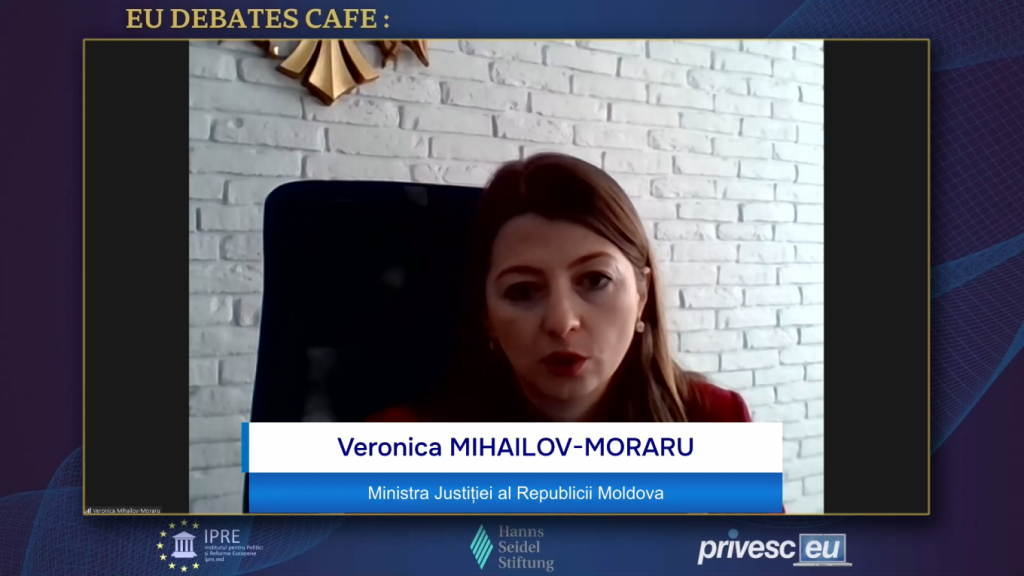
Veronica Mihailov-Moraru, Minister of Justice of the Republic of Moldova: “Both the formation and the functioning of the Superior Council of Magistracy are extremely important for society, but also to ensure that affairs in the judiciary get back to normal. The recent General Assembly has somehow demonstrated that the selection of members on the judges’ side has failed and this raises very serious questions. However, the law clearly states that the General Assembly of Judges was to discuss the selection of SCM members from the judiciary. Moreover, it is not clear wat were the legal basis for the postponement, not postponed, but – as alleged – interrupted, for an excessive period of time, until 28 of April. Thus, since the selection of SCM members from the judiciary has not yet started, it was decided that the Parliament should accelerate the formation of the Council from members representing civil society, given that we currently have three decisions from the pre-vetting commission on three candidates who have passed this pre-vetting exercise. In this context, since we are in an extremely late deadlock on resolving justice-related issues, this is a first step for the SCM to become functional and to solve the problems in the system”.
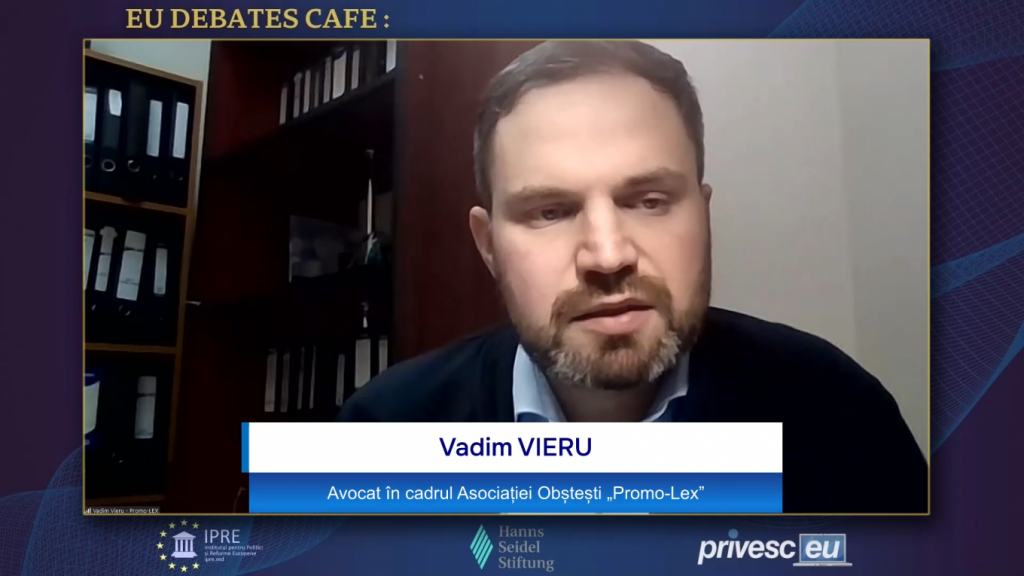
Vadim Vieru, Lawyer “Promo-Lex”: “This situation, which we call deadlock, is a situation related to pre-vetting, but also the result of problems in the field of justice. Related to pre-vetting. This process, whether we like it or not, is a measure of political evaluation of a judicial system, and given that some fellow judges have agreed to participate, they have in principle validated this process in one form or another. The previous problems in the justice sector are also due to the fact that there have been a lot of interim appointments of certain people who have participated in some rather dubious decisions. The existence of lengthy interims is not a good thing, and the justification given by some judges is quite reasonable for the interruption. If a consensus is not reached even after April 28th and members of the SCM are not appointed, it could raise more questions about the process. To avoid this, there must be effective communication on the part of judges and the government. The current distancing will not lead to anything good.”
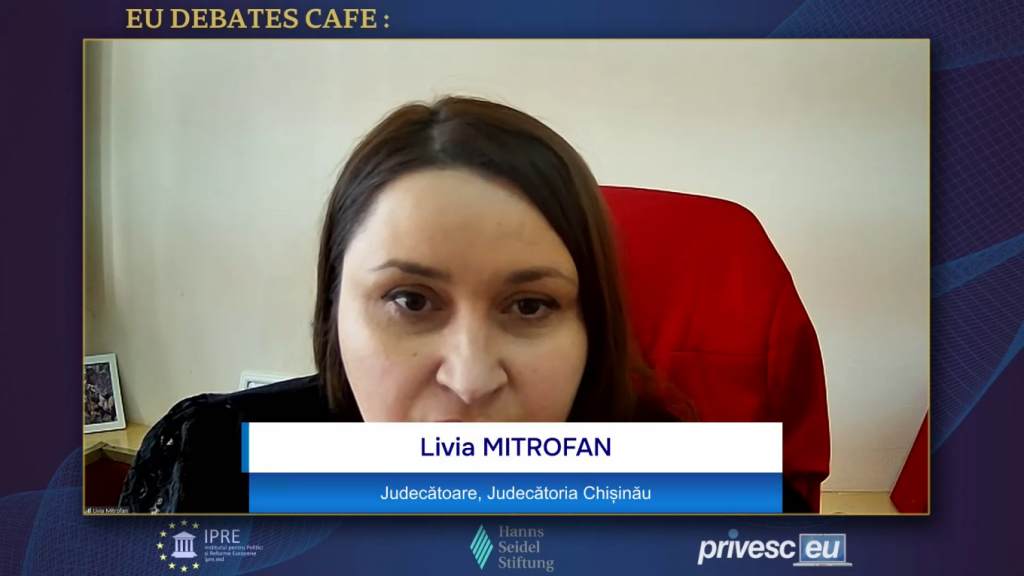
Livia Mitrofan, Judge, Chisinau District Court: “Someone at the Assembly said we need to take off our ‘rose-coloured glasses’. I admit that I had these ‘rose-coloured glasses’, because in practice I am guided by a principle, which is based on the good faith of all participants involved in the process. As long as I’ve been walking this long and difficult road I’ve been relying on this principle. What I have seen, and I think the rose-coloured glasses have disappeared, is that this principle is not specific to our society. I went into the pre-vetting process taking the risk of not passing, being a young judge. At the same time, I have put my trust in the General Assembly on 17th of March, because I have been waiting for the SCJ to examine the appeals. I spoke to colleagues afterwards and explained my position – we are between self-interest and the interest of the judiciary. I saw the effects after the Assembly on 17th of March and regret that my colleagues did not pass pre-vetting and that the SCJ did not examine their appeals. I don’t know if it will be done by April 28th, but I hope we will have irrevocable decisions, according to law 26. I was glad that at the General Assembly colleagues had something to say to society and politicians, that they were very active and exposed the problems in the system. But I was saddened by the way it was organised, because we should have gone out to that Assembly as an absolute example. But I still believe in the good faith of my colleagues and on 28th of April we will have solutions on the appeals and we will proceed to the examination of the election of the new members of the SCM”.
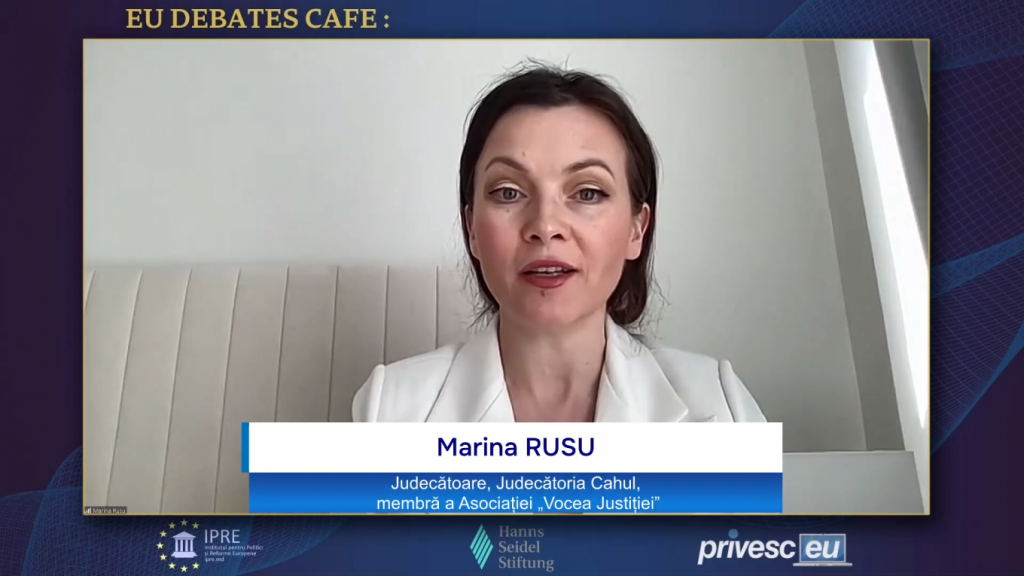
Marina Rusu, Judge, Cahul District Court, member of “Voice of Justice” Association: “The justice system can only be cleaned up from within by a new SCM. When we talk about a new SCM that has to be set up, we all understand that we don’t just want a new council, we want this council to be legal and functional. And when we talk about legal counsel, we understand that there are several principles and rules that must be respected. The first rule would be that at least half of the members of the council must be judges. This rule is an extremely important one, because if we intend to clean up the system through this council, the decisions of this council do not need to be seen as illegal actions afterwards. If we are talking about setting the internal mechanisms and building a healthy judiciary, then it is very important to understand that this rule must be respected.”
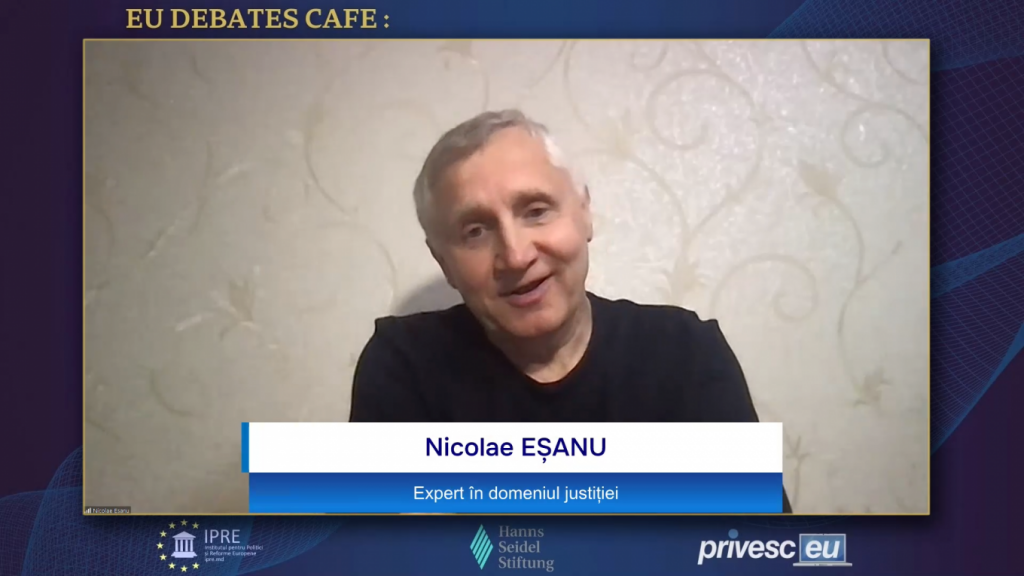
Nicolae Esanu, justice expert: “The SCM is the institution that ensures the independence of judges, but the interests of society must come before the interests of judges. Major change in the field of justice, or in any other area, is only possible as a result of a broad consensus. If we fail to secure this consensus, it is better not to venture with the changes, because the chances of them succeeding now are very small, and the certainty that a counter-reform will follow at the time of the change of power in the state is one hundred percent certain. There must be certainty that the future SCM is formed and functions legally, including in order not to end up in the situation where the judiciary in countries such as Serbia has ended up, which has fired many judges, hired new judges and then been put in the position of restoring the previous ones. The decision-making body must be constituted in accordance with the Constitution. Otherwise, a bomb is simply placed under the judiciary.”
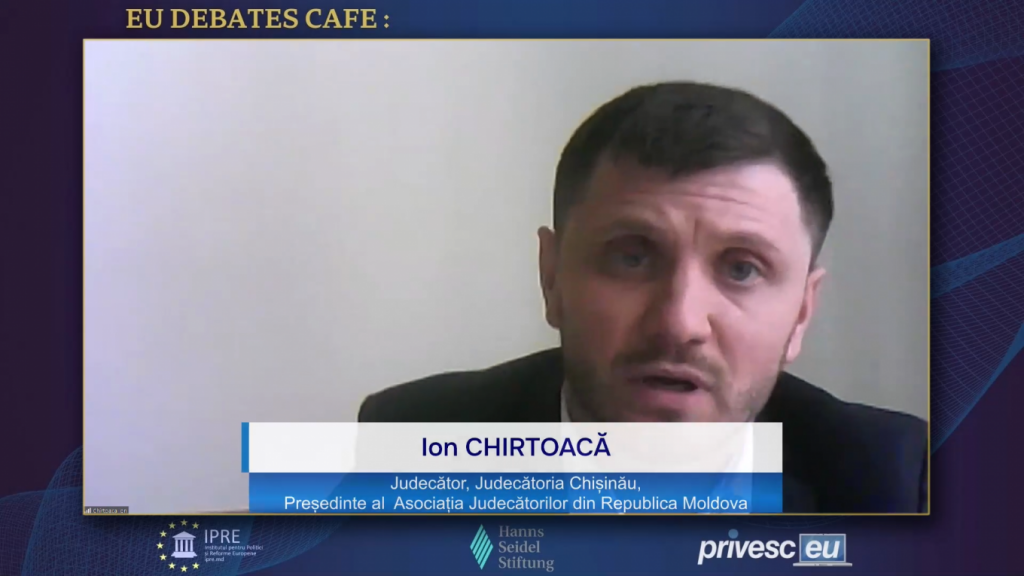
Ion Chirtoaca, Judge, Chisinau District Court, Interim President of the Association of Judges of the Republic of Moldova: “I think it is an exaggeration to say that a deadlock has been created as a result of the General Assembly of 17th of March. The problems in the judiciary have not been discussed for more than four years and after such a period it was to be expected that judges would talk about the problems. If it is insisted that it is a deadlock and a failure, things will not be resolved. There has to be objective communication, and judges have to be part of the reform, and I am not just talking about pre-vetting, which is already a spent stage. I think it is objective that judges should be part of the reform”.
For more details, you can watch the video of the event on privesc.eu here and on Realitatea Live here.
The event was organised in the framework of the project “EU DEBATES CAFÉ: Advancing knowledge and expertise on EU institutions and policies in the Republic of Moldova”, implemented by IPRE, in cooperation with the Hanns Seidel Foundation in the Republic of Moldova and with the financial support of the German Federal Foreign Office.

